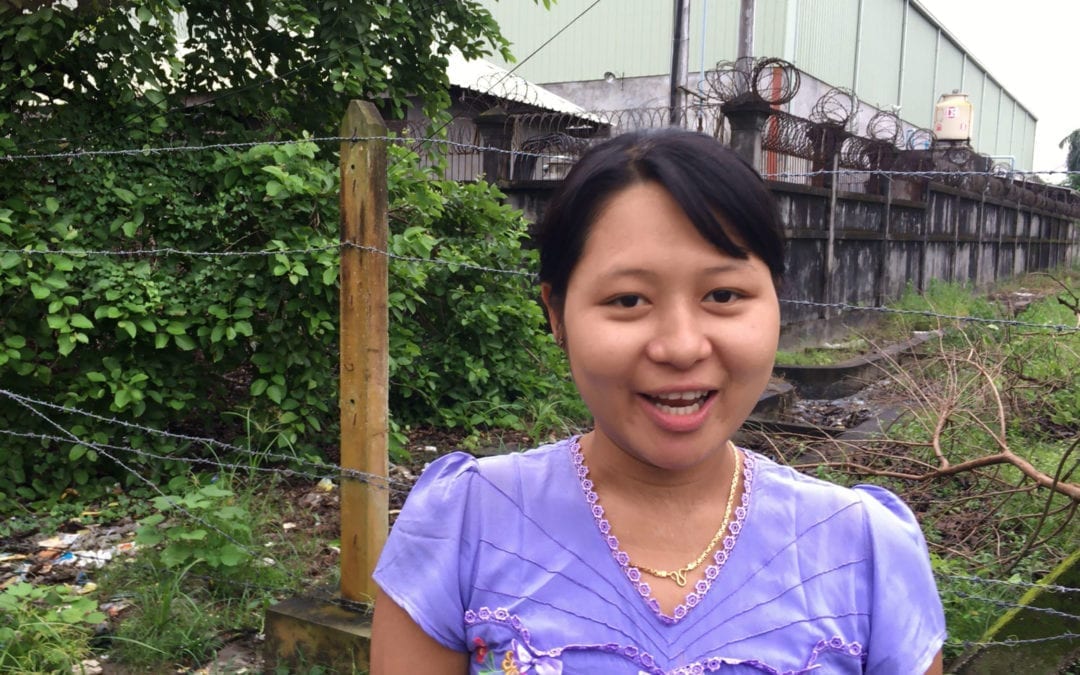
May 8, 2016
I am Ma Lwin Lwin Kyaw. I come from Mawlamyainggyun Township in Ayeyarwaddy Region and work here (in the Hlaing Thar Yar factory district outside Yangon).
I started to work in 2012 in the garment factory. I am 26 years old. I joined the trade union (the Confederation of Trade Unions-Myanmar, CTUM) as a member since 2013.
There were many problems in the period when we started to join the trade union. Then after working together with CTUM, we gained many benefits and now we can work peacefully in the worksites.
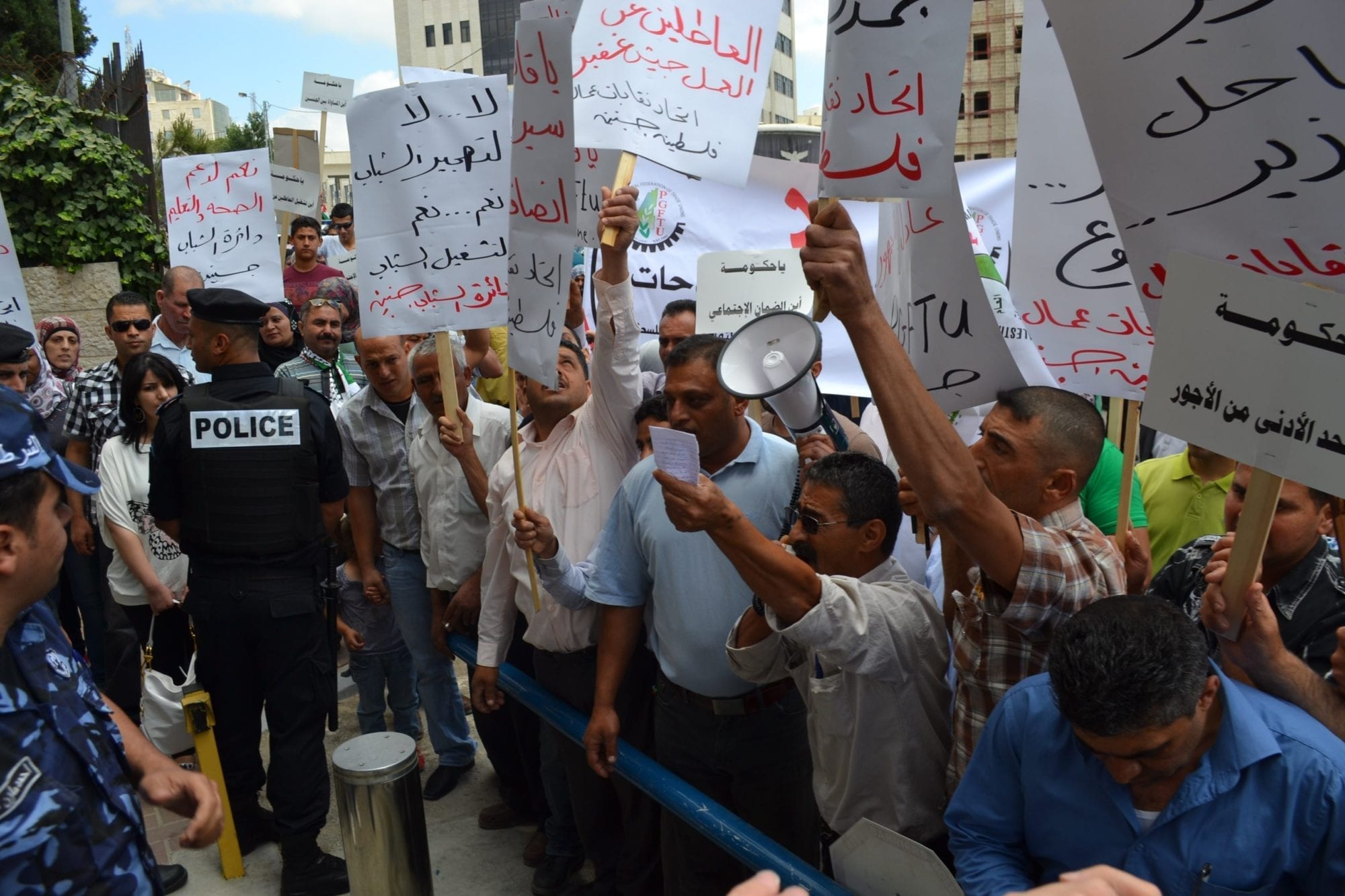
May 5, 2016
More than 300 the Palestinian General Federation of Trade Unions (PGFTU) members took part in the PGFTU Congress in Nablus late last month, where delegates voted to boost representation of women and reinforced the federation’s commitment to worker rights. They were joined by representatives from 16 international organizations, including the International Trade Union Confederation (ITUC), the Solidarity Center and the International Labor Organization (ILO).
Delegates at PGFTU’s Fifth Congress voted to increase from 20 percent to 30 percent the representation of women across all PGFTU bodies over the next four years; agreed to enforce Palestine’s minimum wage law and work to make it a living wage; and reinforced the PGFTU’s stance in defending the freedom to form unions.
Also during the three-day conference, PGFTU General Council members elected Shaher Saad as secretary general and voted in 24 representatives of national general unions, including four women, to the executive committee, along with seven men and women unionists to the financial and administrative audit committee. All will serve four-year terms. The elections were observed by representations from the ILO, the Arab Labor Organization and U.S. and European trade unions and federations.
Delegates backed ongoing dialogue with allies as the PGFTU campaigns for fair labor laws that guarantee decent work for workers and a fair social security law for workers and their families. In ensuring that women make up 30 percent of the federation’s leadership, delegates seek to guarantee their input in designing labor policies and executing union resolutions and reinforced their commitment to promoting the role of Palestinian working women as a key force in the national and local markets.
Participants also emphasized the need to network with civil society organizations and legal groups that to work toward establishing a democratic and transparent civil society.
In his remarks, Saad said workers will achieve social justice and fairness through a strong and independent trade union movement that seeks to elevate workers’ voices and protect him from exploitation.
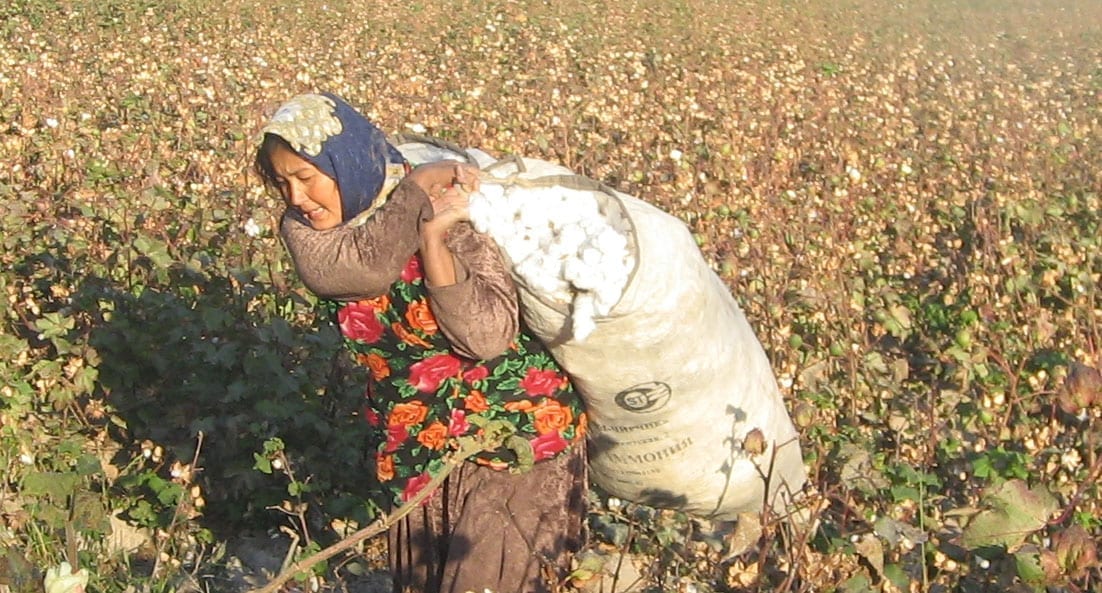
May 3, 2016
A global union campaign is calling on the Uzbek government to reverse its conviction of Uzbek human rights activist Uktam Pardaev, who was sentenced to three years’ probation in January and is under constant surveillance by security services at his home. Officials also continue to harass Uktam Pardaev’s relatives and friends, who have been watched, questioned and threatened, according to global union and human rights groups.
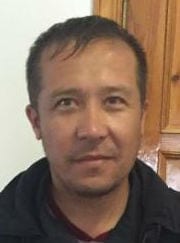
Human rights activist Uktam Pardaev was jailed while he was monitoring last fall’s cotton harvest in Uzbekistan. Credit: IUF
ardaev, a member of an independent cotton harvest monitoring group, was arrested in November 2015 on trumped-up charges of fraud and taking a bribe. He was held for eight weeks in pre-trial detention, where he was locked in a damp, cold cell with only a dirty mat to sleep on and little food. Pardaev says he witnessed officials torturing and mistreating detainees to coerce confessions and was beaten severely on one occasion.
Pardaev was among human rights activists monitoring last fall’s cotton harvest in Uzbekistan, where more than 1 million teachers, nurses and others are forced to pick cotton for weeks each harvest season. A report released in March documented how the government took extreme measures to cover up its actions last fall, jailing and physically abused those independently monitoring the process.
“The government unleashed an unprecedented campaign of harassment and persecution against independent monitors to attempt to cover up its use of forced labor while taking pains to make widespread, massive forced mobilization appear voluntary,” according to The Cover-Up: Whitewashing Uzbekistan’s White Gold.
Uzbekistan, which gets an estimated $1 billion per year in revenue from cotton sales, faced high penalties for not addressing its ongoing forced labor. But rather than end the practice, the government sought to cover it up, according to the report, produced by the Uzbek-German Forum for Human Rights.
Take action now and send a message of support calling on the Uzbek government to reverse Pardaev’s conviction; conduct a prompt, independent, and impartial investigation into his credible allegations of ill-treatment by prison officials; and bring those responsible
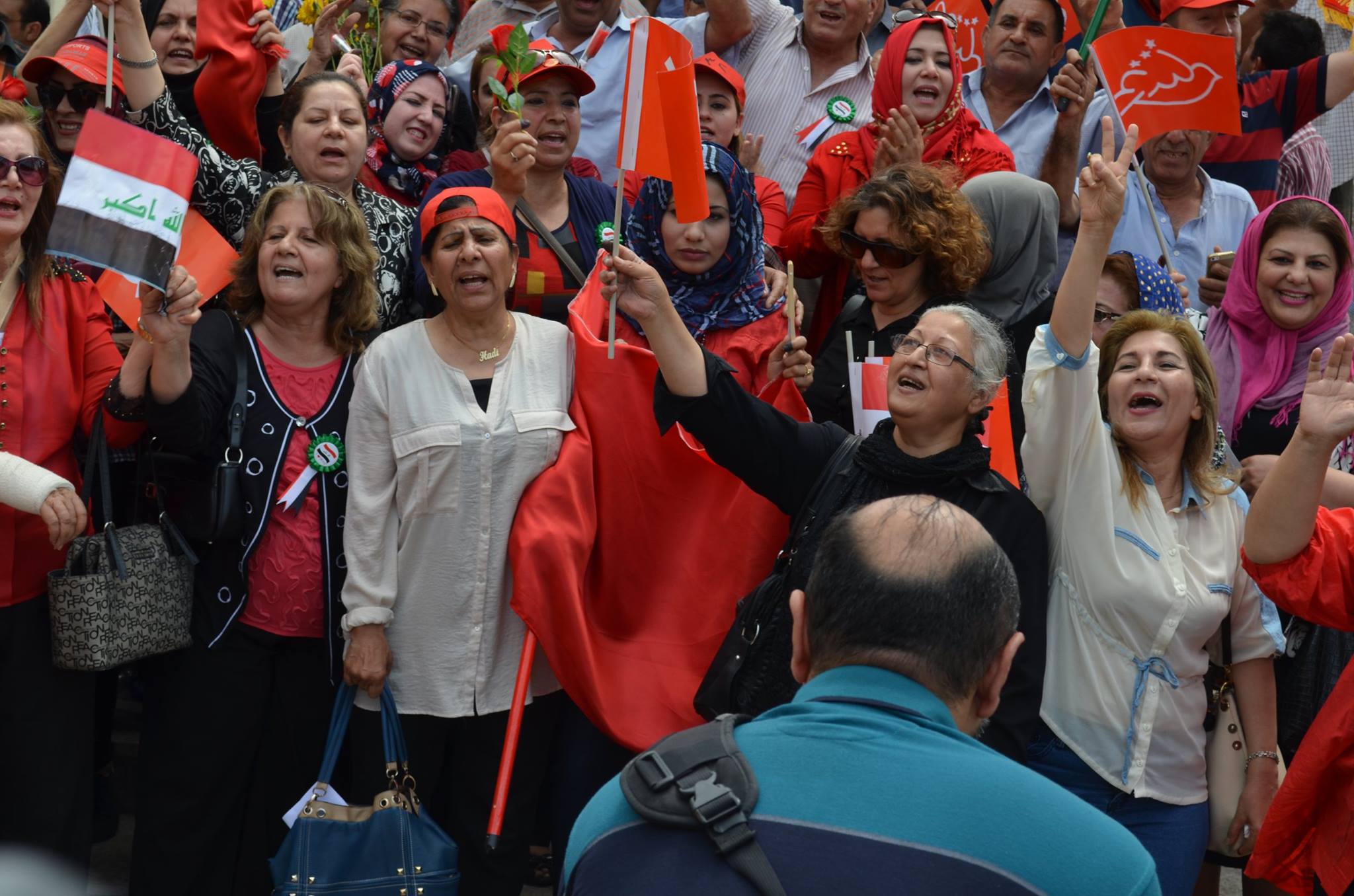
May 2, 2016
Iraq unions successfully pushed for a new labor law because of their unified solidarity and with strong support of the U.S. and global union movements, according to a new documentary.
“Finally, after 12 years of persistent and consistent work, the Iraq labor movement was able to succeed with their international partners and with Iraq civil society … to get worker rights in Iraq,” says Michael Zweig, speaking in the video. Zweig is director of the Center for Study of Working Class Life at Stony Brook University, which produced the video.
“It’s a very big deal,” he said.
“Light from the Darkness: The New Iraq Labor Law” looks at the key role of U.S. Labor against the War in rallying support of the U.S. union movement in support of Iraqi workers’ struggle for labor rights after the fall of Saddam Hussein.
“Labor solidarity was something a … steel worker or paper worker or janitor in the United States could understand. They knew that every worker in the world should be treated fairly,” said Gene Bruskin, co-founder of USLAW.
Also speaking the video, Solidarity Center Executive Director Shawna Bader-Blau says, “the role of U.S. Labor against the War was so important in galvanizing the support of American workers for…reaching out and educating thousands of thousands of American workers through their unions around the U.S. and around the world through their global outreach.”
Passed by the Iraqi Parliament in August, the labor law allows for collective bargaining, limits child labor, improves rights for migrant workers, provides better protections against discrimination at work and is the country’s first legislation to address sexual harassment at work. The law also enshrines the right to strike, banned since 1987.
Says Bader-Blau: “The Solidarity Center and U.S. Labor against the War were there for Iraqi workers.”
Check out “Light from Darkness.”
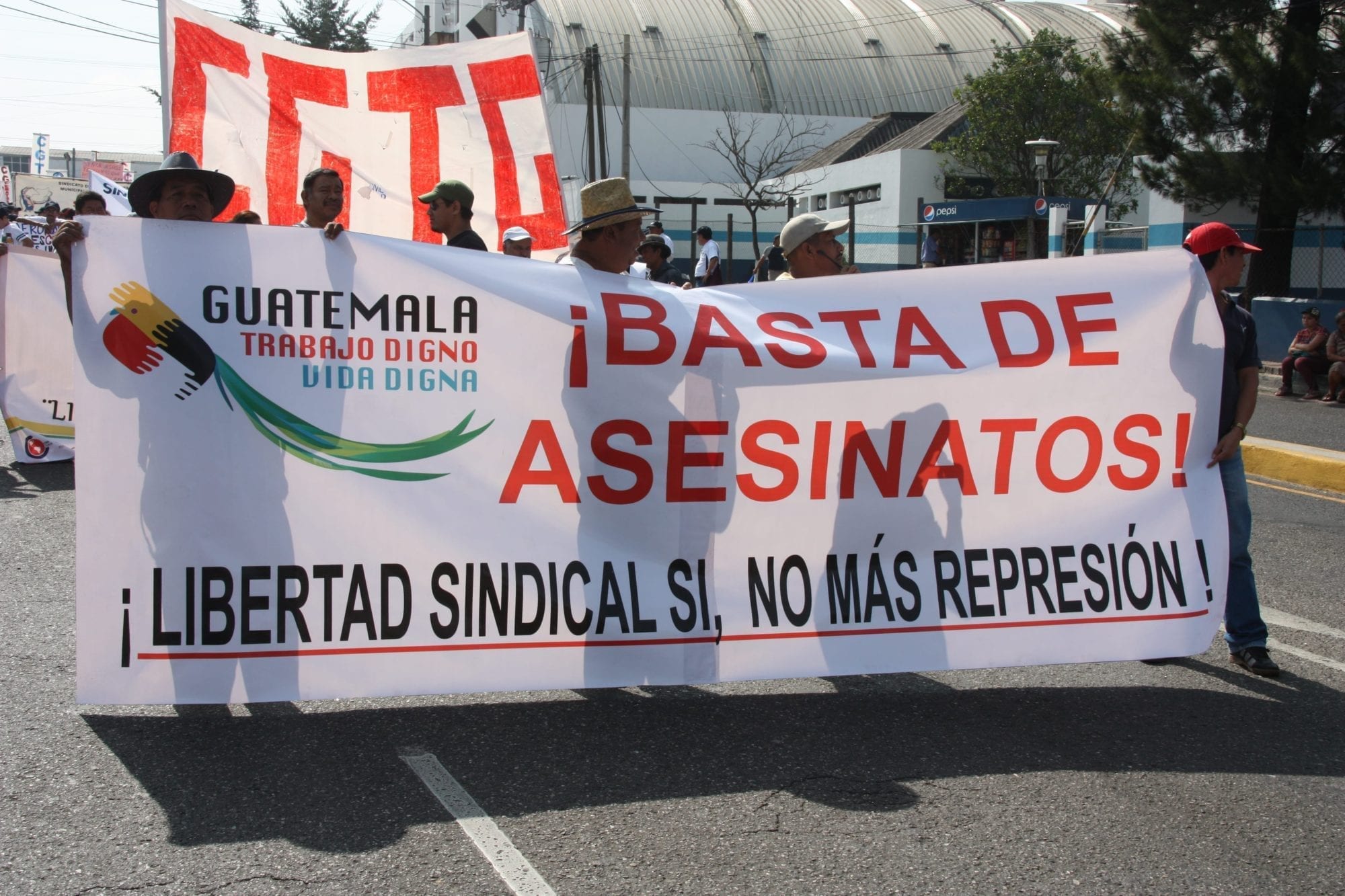
Apr 28, 2016
Guatemala is still one of the most dangerous places in the world for worker rights activists, with 14 incidents of anti-union violence documented and verified in 2015, according to a report issued today by the Worker Rights Defenders Network of Guatemala.
The incidents—including the October 2015 murder of Mynor Rolando Ramos Castillo, a municipal worker in southeastern Guatemala, and the sixth member of his union to be assassinated—were tracked by the Protection Unit of Human Rights Defenders-Guatemala (UDEFEGUA) and the Worker Rights Defenders Network in their ”Annual Report on Anti-Union Violence.” The group also documented the arbitrary and illegal detention of a trade unionist, anonymous death threats received by activists, and illegal firings and intimidation, including surveillance of the home of one trade unionist. Half of the cases involved public-sector workers.
Between 2004 and 2013, 70 trade unionists were assassinated in Guatemala, most with impunity. Only 18 cases from that period were investigated and successfully brought to trial. In November 2015, the Guatemala government reported to the International Labor Organization that the 52 other cases were still open.
The lack of credible police probes into harassment, threats and violence—including murder—against workers attempting to improve their working conditions, treatment and wages, and exercise their legal right to join a union has a dampening effect on workers’ voice. According to the report, when perpetrators of violence escape justice, human rights are denied and the right to freedom of association is co-opted, weakened, attacked and destroyed.
The Worker Rights Defenders Network of Guatemala was formed in 2014 to ensure observance and promotion of human rights in Guatemala. Its sister organization, the Network against Anti-Union Violence in Honduras, released its annual accounting of anti-union violence. Both organizations are Solidarity Center allies and received support to produce their reports.






